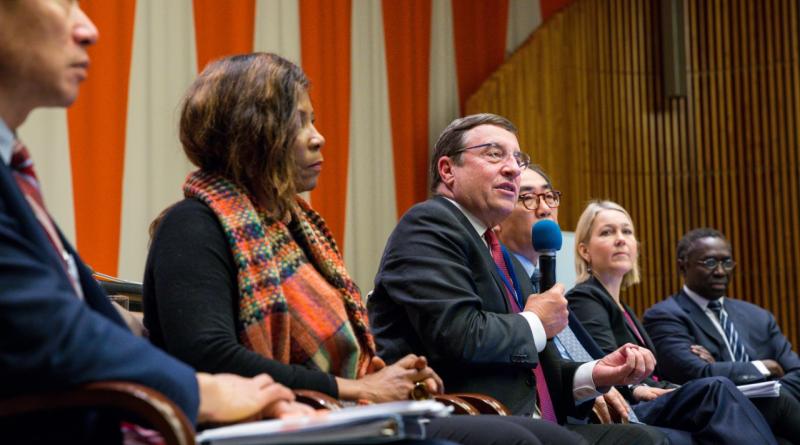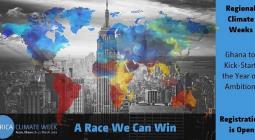Poverty ‘at centre of everything we do'

UN Development Programme highlights ‘next generation’ approach that leaves no one behind
New York City, 21 January 2019 – The UN Development Programme’s (UNDP) Executive Board heard today that the Organization was disrupting and pushing boundaries in the way it thinks, delivers, invests and manages – changes that allow it to perform better and faster at scale.
Looking to the Organization’s future, UNDP Administrator Achim Steiner said that UNDP would focus on tackling the “three challenges of inequality, climate change, and migration,” whilst ensuring that “poverty eradication is at the centre of everything we do.”
“Poverty is one of the greatest challenges facing humanity,” Steiner added. “If we consider the multiple deprivations people face, the number of multi-dimensionally poor people in the world jumps to 1.3 billion. For UNDP, eradicating poverty is both about escaping poverty and, critically, staying out of poverty.”
At today’s meeting, the First Regular Session of the Board for 2019, UNDP organized a special interactive dialogue that focused on two key areas of UNDP’s work – poverty and the humanitarian-development nexus. This format allowed for a dynamic and in-depth discussion of the issues and opportunities facing UNDP in the coming year and beyond.
Joining the discussion on the humanitarian-development nexus, Mark Lowcock, Under-Secretary-General and Emergency Relief Coordinator for the UN Office for the Coordination of Humanitarian Affairs (OCHA), said that last year humanitarian aid had “reached 100 million people and unquestionably saved millions of lives.”
While the humanitarian system was effective, he continued, the challenge was that aid did not in and of itself deal with the root problems. “Unless we deal with the underlying causes of humanitarian suffering, unless we get better at providing political solutions and peacebuilding, and crucially at accelerating development and reducing poverty, we will see continuing high levels of humanitarian need.”
Collaboration with the development system was “particularly important,” he added, saying there was an opportunity to make donors’ money “work harder to shrink humanitarian needs and free up funding for development.”
UNDP’s Executive Board is made up of representatives from 36 countries around the world, who serve on a rotating basis. The Board oversees and supports the activities of UNDP to ensure that the Organization remains responsive to the evolving needs of the countries in which it works.
21 January 2019
![]()


